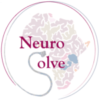From 25th September to 2nd October 2024, Antony Nyerere and Fredy Mlowe, two of NeuroSolve’s project PhD students, paid a field visit to four district councils in Tanzania, from which they expect to collect data that will answer to research questions in the coming three years. With strong assistance and support from Professor Helena Ngowi and Dr. Ernatus Mkupasi, they successfully introduced the NeuroSolve Project, its goals, and the research plan and activities to the respective administrative officials of all the four district councils visited.
They managed to visit all four tanzanian district councils as planned as named below:
- Songwe District Council (Southern Highlands)
- Mbinga District Council (Southern Highlands)
- Kongwa District Council (Central Zone)
- Mbulu District Council (Northern Highlands)
The following are the district councils management officials targeted in the visit, namely: Chairperson of the District Council, District Executive Director (DED), District Medical Officer, District Livestock Officer/District Veterinary Officer, District Health Officer, District Agricultural, Livestock and Fisheries Officer, District Community Development Officer, District Education Officers (primary and secondary levels), District Development Planning Officer, District Media Officer, Council Clark Officer, and Rural Water Supply Authority Manager.
In that regard, they managed to meet all intended officials, making a total of 52 officials visited in all four district councils, 13 officials from each council. In Mbulu district, they were lucky to engage a Member of Parliament, who fully attended the meeting.
As project’s lead investigators and in support from NeuroSolve field visit team, Prof. Helena Ngowi and Dr. Ernatus Mkupasi highlighted the NeuroSolve Project’s history and main goals, emphasizing its potential to significantly improve the public health outcomes in the region.
As leading researchers and PhD students in their respective research areas, they highlighted their main and specific research objectives in the study district councils, describing key respondents they expect to engage in their research activities, and what they would wish and expect of them in support of their research activities. In addition, they provided room for their inputs, especially on whatever they think would work for them and for NeuroSolve project in ensuring that the research activities are being run smoothly in the coming three years of their stay and constant visits in their councils.
The interactive approach used provided very constructive and supportive inputs from the district councils’ management officials. It provided room for them to speak their minds and what they expect of our research activities and the NeuroSolve Project goals and outputs in general.
As of the research objectives and activities, they were very open to contribute to what they thought would improve and simplify the working in their councils. For example, they insisted on engaging the Media, Environmental Officials, and Local Leaders at the suburb levels in ensuring that our research agender is communicated and addressed to the right stakeholders.
The field visit was highly successful, with active engagement from district leaders. The NeuroSolve project was well-received, with the district councils’ management expressing their strong support for the project’s potential to improve public health and economic outcomes in their councils and the nation at large. Moving forward, the next step is to pilot test the proposed data collection tools after which the actual data collection will be started in the respective district councils.
Photos taken during our visits in Songwe, Mbinga, Kongwa, and Mbulu Councils.

Photograph 1: NeuroSolve Project-SUA: Field visit at Songwe District Council, Tanzania

Photograph 2: NeuroSolve Project-SUA: Field visit at Mbinga Council, Tanzania

Photograph 3: NeuroSolve Project-SUA: Field visit at Mbulu Council, Tanzania

Photograph 4: NeuroSolve Project-SUA: Field visit at Kongwa District Council
